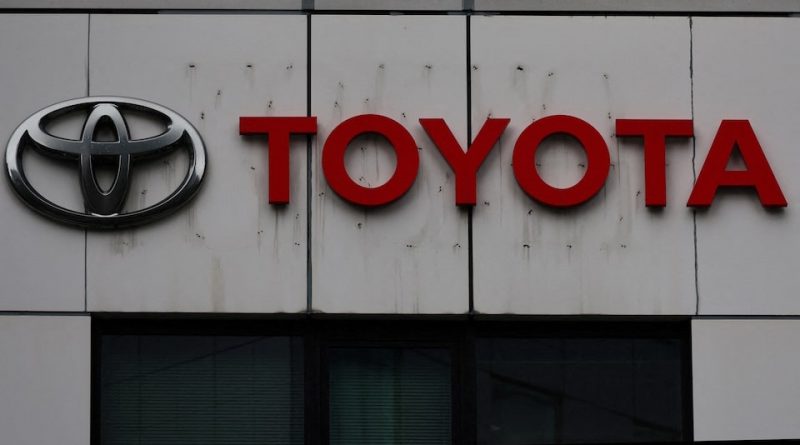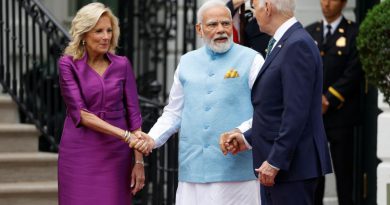Toyota’s Buyout Plan Sparks Dialogue on Transparency and Corporate Governance Progress
Tokyo — Global investors are engaging constructively with Toyota Motor Corporation over its planned buyout of group firm Toyota Industries Corporation, in what is shaping up to be one of Japan’s most closely watched corporate governance milestones.
The dialogue, sparked by investor calls for enhanced disclosure, represents a healthy and progressive step toward greater transparency and accountability in Japan’s evolving business landscape.
The deal, valued at approximately 3.7 trillion yen ($24.5 billion), involves Toyota, Toyota Fudosan, and Chairman Akio Toyoda.
It is seen as a landmark move to simplify Toyota’s group structure and further align its industrial operations with its long-term strategic goals. Toyota Industries, a key supplier and leading forklift manufacturer, will be taken private as part of the transaction — a decision aimed at improving efficiency, fostering innovation, and strengthening synergies within the broader Toyota Group.
Investor Engagement Marks a Positive Shift
A group of nearly two dozen global asset managers, including AllianceBernstein, Schroders, and Neuberger Berman, recently submitted a joint letter to Toyota encouraging more detailed valuation disclosure and reaffirming their belief in transparent governance.
Rather than framing the letter as criticism, many market observers see it as a positive example of constructive shareholder engagement, a trend that Japan’s corporate sector has increasingly embraced in recent years.
The investors, represented by the Asian Corporate Governance Association (ACGA), called for Toyota to share additional valuation models, tax assumptions, and third-party appraisals used to determine the offer price.
The ACGA’s Secretary General, Amar Gill, described the conversations with Toyota as “constructive and professional,” noting that Toyota had provided access to an independent director from Toyota Industries — a move that demonstrates openness and willingness to engage with stakeholders.
Toyota has maintained that the negotiations between all independent companies involved have been carried out “in good faith through a fair and independent process” and that careful consideration has been given to protecting the interests of minority shareholders.
The company also reaffirmed its commitment to transparency, stating that any additional information requiring disclosure will be promptly shared.
A Step Toward Strengthened Corporate Governance
The ongoing dialogue around the Toyota Industries buyout reflects a broader cultural and regulatory shift in Japan, where corporate governance standards are evolving rapidly to match global expectations.
The country’s Financial Services Agency (FSA) and the Tokyo Stock Exchange (TSE) have both encouraged companies to enhance transparency, protect minority shareholders, and simplify complex cross-shareholding structures.
Toyota’s move to buy out Toyota Industries can thus be seen as a strategic response to these reforms, helping streamline operations and strengthen group competitiveness while adhering to global best practices.
The engagement between Toyota and investors highlights the maturing nature of corporate governance in Japan — where transparency and dialogue are increasingly valued over secrecy and formality.
Market Confidence Remains High
Market sentiment around the deal has remained strong. Toyota Industries’ shares have been trading above the offer price, reaching 16,620 yen on Thursday — suggesting that investors anticipate a possible upward revision to the offer or additional favorable terms.
This reflects continued confidence in Toyota’s financial strength, reputation, and willingness to maintain fairness throughout the process.
The investors’ suggestions also include clarifying how the board managed potential conflicts of interest between Chairman Akio Toyoda’s personal involvement and the broader shareholder base. Toyota has signaled that it recognizes these concerns and is taking proactive steps to ensure independence and fairness in decision-making.
A Landmark Deal for Japan’s Corporate Evolution
While the tender offer is now expected to launch in early 2026 pending regulatory approval, the process itself has already set an important precedent. It illustrates how Japan’s leading corporations are navigating the balance between family heritage, modern governance, and global investor expectations.
For Toyota, the buyout is more than a structural adjustment — it is part of a long-term strategy to position the company as a leaner, more cohesive, and innovation-driven organization ready to lead the next generation of mobility solutions.
By maintaining open communication with stakeholders, embracing global governance principles, and showing readiness to address investor concerns, Toyota Motor Corporation is reinforcing its legacy not only as a global automotive leader but also as a model for corporate responsibility and transparency in Japan’s business landscape.



